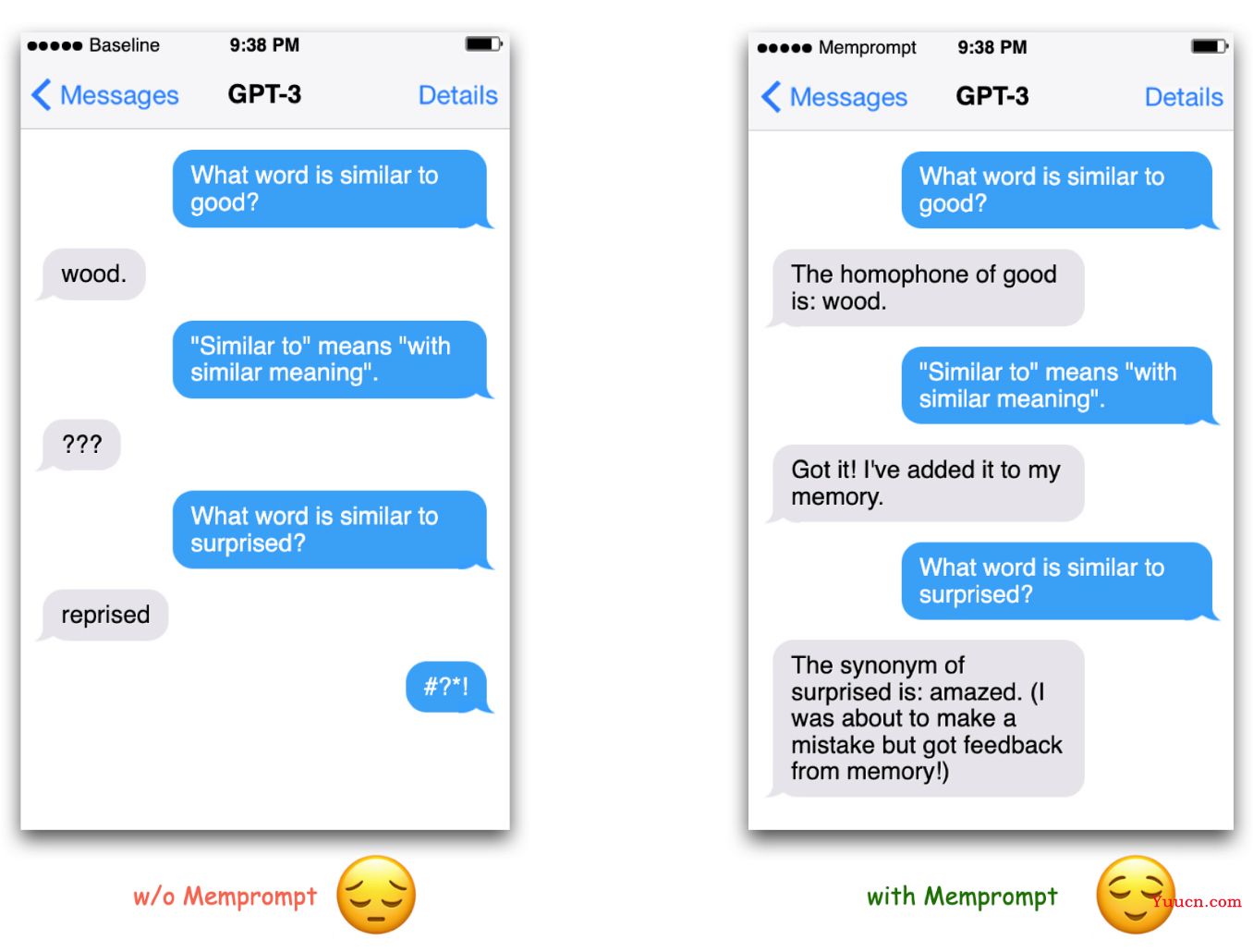大语言模型集成工具 LangChain
LangChain 介绍
- 介绍:
- 通过可组合性使用大型语言模型构建应用程序
- 【背景】大型语言模型 (LLM) 正在成为一种变革性技术,使开发人员能够构建他们以前无法构建的应用程序,但是单独使用这些 LLM 往往不足以创建一个真正强大的应用程序,当可以将它们与其他计算或知识来源相结合时,就有真的价值了。LangChain 旨在协助开发这些类型的应用程序
- 使用文档:https://langchain.readthedocs.io/en/latest/index.html
- 代码:https://github.com/hwchase17/langchain
安装介绍
- 库安装
pip install langchain
pip install openai
- OPENAI KEY 获取:
- 淘宝上花几块钱购买一个是最方便的途径
- 或到 https://openai.com/blog/openai-api/ 网站申请账号,申请周期有可能会比较长
- 添加环境变量
- 在终端运行:
export OPENAI_API_KEY="..." - 或在 python 脚本中添加:
import os; os.environ["OPENAI_API_KEY"] = "..."
- 在终端运行:
LangChain 应用(基于0.0.64 版本测试)
获取 LLM 的预测 (QA 任务)
- 获取 LLM 的预测是最直接的应用方式,测试样例如下
text = "What would be a good company name a company that makes colorful socks?"
print(llm(text)) # 返回 Socktastic!
简单数学问题:
from langchain.llms import OpenAI # 导入 LLM wrapper
llm = OpenAI(temperature=0.9) # 大的 temperature 会让输出有更多的随机性
text = "what is the results of 5+6?"
print(llm(text)) # 返回 11
text = "what is the results of 55+66?"
print(llm(text)) # 返回 121
text = "what is the results of 55555+66666?"
print(llm(text)) # 返回 122221
text = "what is the results of 512311+89749878?"
print(llm(text)) # 返回 89,876,189,终于错了...
另一个例子,这里返回的是同义词,如果要返回同音词则需要修改输入的 prompt(另外一个解决方式是基于以下章节中的 Memory 模式):
text = "what word is similar to good?"
print(llm(text)) # 返回 Excellent
text = "what word is homophone of good?"
print(llm(text)) # 返回 Goo
输入 prompts 模板设置
- 在上面根据公司生产的产品生成公司名字的应用中,一种让用户输入更简单的方式是仅让客户输入公司生产的产品即可,不需要输入整个语句,这需要对 prompts 设置模板:
from langchain.prompts import PromptTemplate
prompt = PromptTemplate(
input_variables=["product"],
template="What is a good name for a company that makes {product}?",
)
print(prompt.format(product="colorful socks")) # 返回 What is a good name for a company that makes colorful socks?
text = prompt.format(product="colorful socks")
print(llm(text)) # 返回 Socktastic!
text = prompt.format(product="chocolates")
print(llm(text)) # 返回 ChocoDelightz!
Memory 功能: 在 LLM 交互中记录交互的历史状态,并基于历史状态修正模型预测
-
该实现基于论文: MemPrompt
- 即当模型出错了之后,用户可以反馈模型错误的地方,然后这些反馈会被添加到 memory 中,以后遇到类似问题时模型会提前找到用户的反馈,从而避免犯同样的错

- 即当模型出错了之后,用户可以反馈模型错误的地方,然后这些反馈会被添加到 memory 中,以后遇到类似问题时模型会提前找到用户的反馈,从而避免犯同样的错
-
对话任务中的 ConversationChain 示例(ConversationBufferMemory 模式),verbose=True 会输出对话任务中的 prompt,可以看到之前聊天会作为短期 memory 加在 prompt 中,从而让模型能有短时间的记忆能力:
from langchain import OpenAI, ConversationChain
llm = OpenAI(temperature=0)
conversation = ConversationChain(llm=llm, verbose=True)
conversation.predict(input="Hi there!") # 返回如下
#> Entering new ConversationChain chain...
#Prompt after formatting:
#The following is a friendly conversation between a human and an AI. The AI is talkative and provides lots of specific #details from its context. If the AI does not know the answer to a question, it truthfully says it does not know.
#Current conversation:
#Human: Hi there!
#AI:
#> Finished chain.
# Out[53]: " Hi there! It's nice to meet you. How can I help you today?"
conversation.predict(input="I'm doing well! Just having a conversation with an AI.") # 返回如下
#Prompt after formatting:
#The following is a friendly conversation between a human and an AI. The AI is talkative and provides lots of specific #details from its context. If the AI does not know the answer to a question, it truthfully says it does not know.
#Current conversation:
#Human: Hi there!
#AI: Hi there! It's nice to meet you. How can I help you today?
#Human: I'm doing well! Just having a conversation with an AI.
#AI:
#> Finished chain.
#Out[54]: " That's great! It's always nice to have a conversation with someone new. What would you like to talk about?"
- LangChain 这里看起来没有直接在 QA 任务中集成 memprompt,不过可以基于对话任务来测试之前 QA 任务中出错的问题,可以看到基于 memprompt 确实可以利用用户的反馈来修正模型预测结果:
conversation.predict(input="what word is similar to good?") # 返回 ' Synonyms for "good" include excellent, great, fine, and superb.'
conversation.predict(input="similar to means with similar pronunciation") # 返回 ' Ah, I see. Synonyms for "good" with similar pronunciation include wood, hood, and should.'
这里的实现看起来和 memprompt 非常类似,每个问题不会直接回答答案,而是回答 understating+answer,从而让用户可以基于对 understating 的理解来判断模型反馈是否符合用户的预期,而不用直接判断 answer 的正确性
-
对话任务中的其他几种 memory 添加模式
- ConversationSummaryMemory:与 ConversationBufferMemory 类似,不过之前的对话会被总结为一个 summary 加在 prompt 中
- ConversationBufferWindowMemory:在 ConversationBufferMemory 模式基础上加个滑窗,即只加入最近几次对话的记录,避免 memory buffer 过大
- ConversationSummaryBufferMemory:结合以上两种方式,将之前的对话总结为一个 summary 加在 prompt 中,同时会设置一个 prompt 最大词汇数量,超过该词汇数量的时候会抛弃更早的对话来使 prompt 的词汇数量符合要求
-
更高级的 memory 使用方式
- Adding Memory to a Multi-Input Chain:主要用于 QA 任务,用一个语料库作为 memory,对于输入的 prompt,找到与该 prompt 类似的信息加在 prompt 中,从而能利用上语料库中的信息
- Adding Memory to an Agent:对于具备 google 搜索功能的 Agent,可以将对话历史记录到 memory 中,从而能让 Agent 对某些与之前历史结合的对话理解更准确
总结
- LangChain 基于 OPENAI 的 GPT3 等大语言模型设计一系列便于集成到实际应用中的接口,降低了在实际场景中部署大语言模型的难度